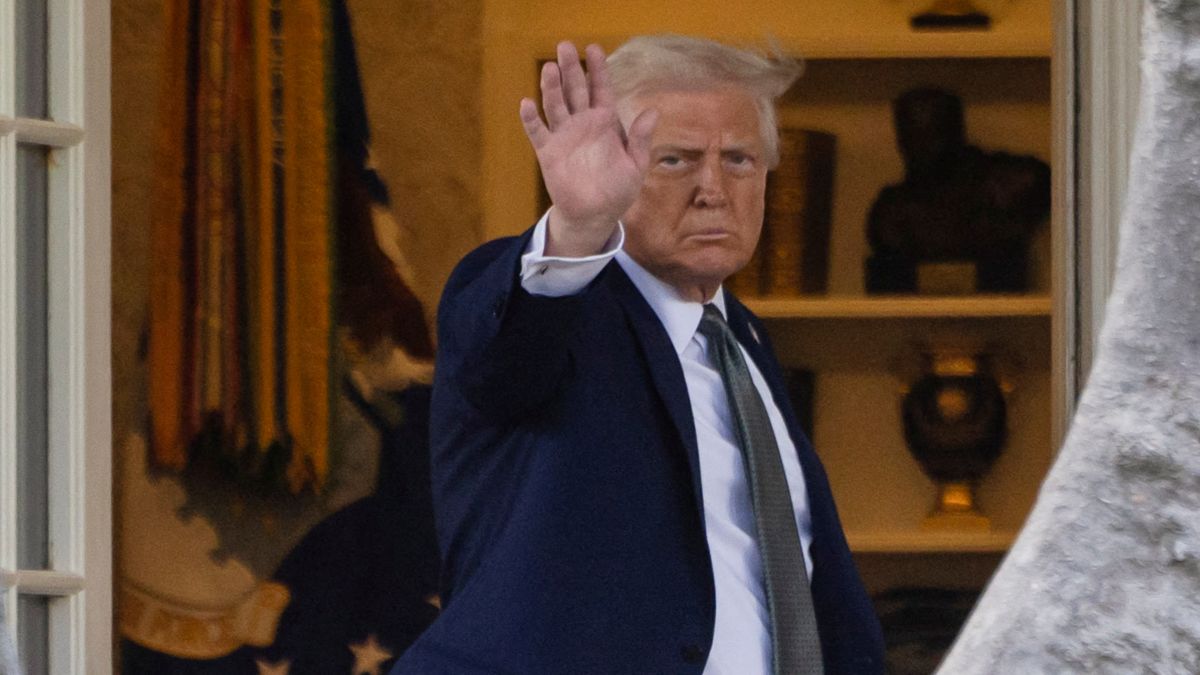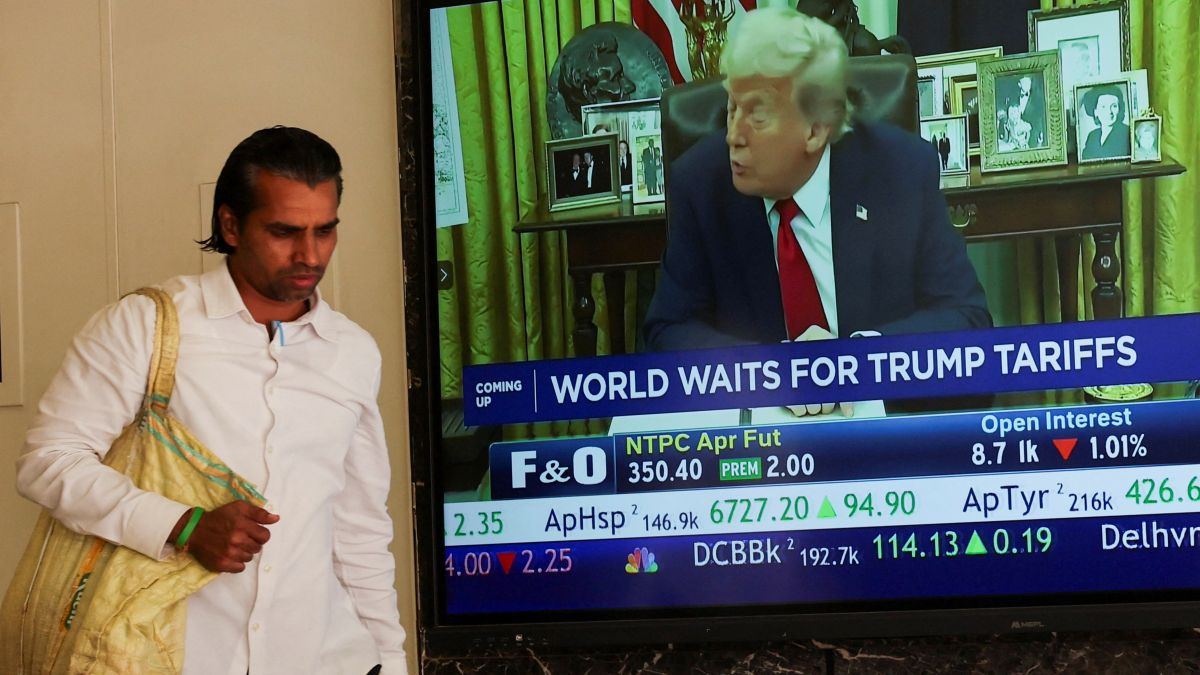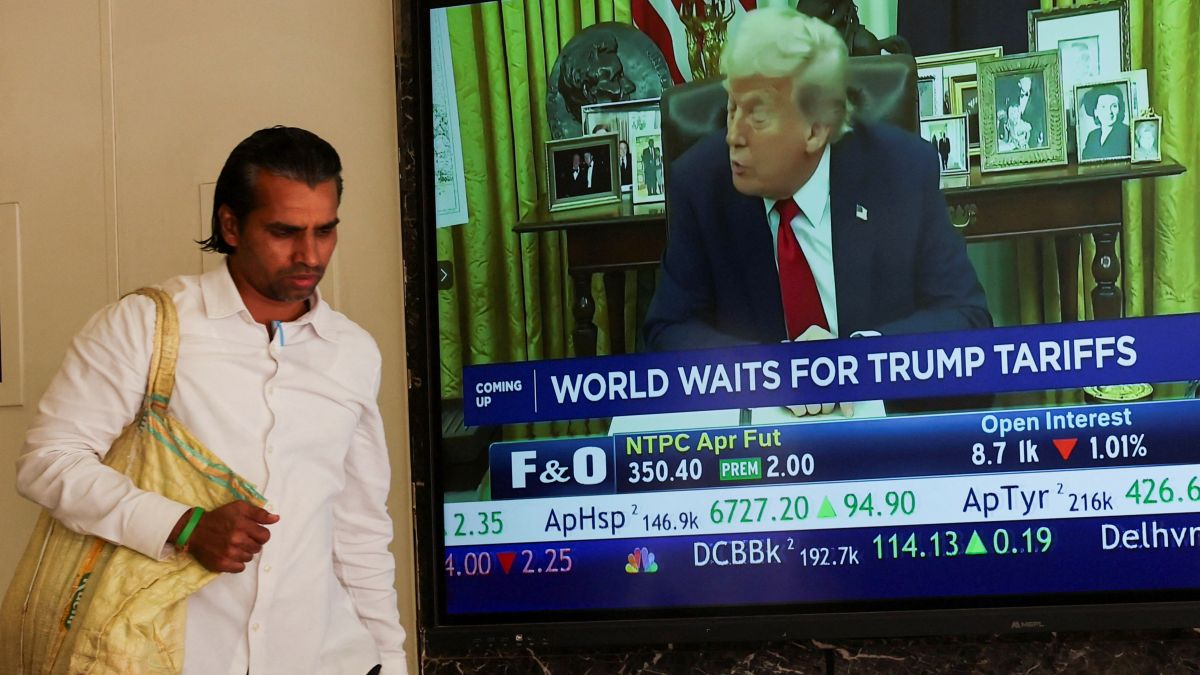Ahead of the rollout of US President Donald Trump’s reciprocal tariffs, countries and blocs have been scrambling to minimise the damage to their economies.
While a number of countries have been engaged in talks with the Trump administration to cut best possible deals, such as India and the United Kingdom, some countries and blocs have been following a carrots and sticks approach where retaliatory actions have been worked out along with talks.
As Trump is all set to impose broad tariffs, calling it ‘Liberation Day’, follow the latest live updates on coming tariffs here.
With just hours to go till Trump’s announcement, there is little clarity about the nature or extent of tariffs. It is not known whether he would go with targeted country-by-country, product-by-product tariffs or blanket tariffs. As Trump has revealed little, countries too have largely shied from laying out specific respponses and have instead laid down general outline of their approach.
Amid such uncertainty, all economic indicators and projections are grims for both the United States and the world. For the US economy, the Moody’s has raised the odds of a recession to 40 per cent as consumer sentiment has tanked to a four-year low amid persistent inflation. As for the world economy, a study by the Aston Business School has concluded that Trump’s trade war could cost the world $1.4 trillion a year.
This is how different countries and blocs are preparing for Trump’s tariff war.
Mexico
Mexico, the country set to be worst hit by tariffs as per the Aston study, has indicated it’s opting for talks and targeted measures instead of a tit for tat retaliation.
In addition to reciprocal tariffs, 25 per cent Mexico-specific tariffs will also go into effect on Wednesday with the end of one-month reprieve granted last month.
ALSO READ: Trump’s tariff war could cost world $1.4 trillion, raise prices in US by 5%, finds analysis
While Mexican President Claudia Sheinbaum has vowed a “comprehensive response” to Trump’s tariffs, she said on Tuesday that “we do not believe in an eye for an eye, a tooth for a tooth, because that always leads to a bad situation”. She further said that “of course, measures are taken (in Mexico) because measures are taken on the other side, but the dialogue must continue”.
As per the Aston study, Mexico could lose up to 3.7 per cent of GDP as a result of Trump’s tariffs.
There have been indications that Mexico may coordinate its response to Trump’s tariffs with Canada.
Canada
Canadian Prime Minister Mark Carney has announced that generations-long special relationship with the United States is over.
While other countries are merely facing a tariff war, Trump has unleashed an all-round aggression on Canada. He has vowed to annex Canada and make it the 51st US state. The 25 per cent tariffs are seen as a way to bring the nation to its knees to make subjugation easier.
Canada’s federal government, along with states like Ontario, have rolled out retaliatory packages in response to Trump’s tariffs so far. More such tariffs are expected if Trump targets Canada under th reciprocal tariff regime as well.
Canada could lose 2.7 per cent of GDP as a result of Trump’s tariffs, according to the Aston study.
European Union
Just like Canada, Trump has special beef with the European Union (EU). He has said that the EU was formed with the sole objective to “screw” the United States.
In response to Trump’s tariffs on automobiles and metals, the EU has already announced retaliatory tariffs targeting US agricultural goods, beverages, and consumer goods. More such tariffs are in the offing if Trump escalates the trade conflict.
ALSO READ: Even as Trump wages tariff wars, 75% Americans don’t know what it means
Ahead of the rollout of reciprocal tariffs, EU chief Ursula von der Leyen warned on Tuesday that the bloc is prepared to respond quickly and “holds a lot of cards”.
Von der Leyen said, “We do not necessarily want to retaliate but, if it is necessary, we have a strong plan to retaliate and we will use it.”
Von der Leyen further said that the EU has a “strong plan” ready.
“Europe has not started this confrontation. We do not necessarily want to retaliate, but if it is necessary, we have a strong plan to retaliate and we will use it,” European Commission President Ursula von der Leyen told EU lawmakers. Europe holds a lot of cards, from trade to technology to the size of our market. But this strength is also built on our readiness to take firm counter measures if necessary. All instruments are on the table,” said Von der Leyen.
However, Von der Leyen indicated that the EU is interested in a middle way approach instead of a confrontation. She said that the US-EU economic relationship is the “largest and most prosperous trade relationship worldwide” and “we would all be better off if we could find a constructive solution”.
Separately, French President Emmanuel Macron has said that US tariffs have were “not coherent” and would mean “breaking value chains, creating inflation in the short term and destroying jobs. It’s not good for the American economy, nor for the European, Canadian or Mexican economies”.
United Kingdom
The United Kingdom has sought a middle ground approach where Prime Minister Sir Keir Starmer has tried hard to reach an understanding with the Trump administration to avert the worst of the tariff war. He has, however, said that there would indeed be retaliation if the worst indeed comes.
To avert a tariff war, Starmer has offered a number of concessions to the Trump administration.
ALSO READ: Trump’s tariffs & mass-firing: Economists fear ‘stagflation’ is on the horizon
The Telegraph has reported that Starmer has put on table agreements related to artificial intelligence (AI) and easing or scrapping the digital tax for US tech giants.
Starmer has also offered to reduce tariffs on US imported meats, such as chicken and beef, according to the newspaper.
China, South Korea, Japan
The Asian economic giants China, South Korea, and Japan have indicated that they could mount a joint response to Trump’s tariffs.
Chinese state media have reported that Japan and South Korea are looking forward to increasing trade with China in critical sectors, such as semiconductors, to minimise the harm from Trump’s tariffs. South Korea, however, has said that such accounts are “somewhat exaggerated”.
On the record, Chinese Foreign Ministry has said that there are no “there are no winners in trade wars or tariff wars and no country’s development and prosperity are achieved through imposing tariffs”.
Currently, China faces 20 per cent tariffs from Trump on the top of targeted tariffs imposed by the previous Joe Biden administration. China has also unleashed two rounds of tariffs on the United States in retaliation to Trump’s tariffs.
Even as Japan and South Korea have downplayed the report of cooperation, Japanese Trade Minister Yoji Moto admitted a meeting of three countries has taken place in which they “exchanged” views on trade.
India
India has offered a host of concessions to avoid the worst of Trump’s tariff war.
India has already cut down tariff rates and has indicating cutting tariffs on a host of products in various sectors. India is also engaged in talks with the Trump administration for a bilateral trade agreement that seeks to address longstanding US concerns regarding trade and commerce.
Among the concessions that India has offered include ending or reducing tariffs on US automobile parts, alcoholic beverages, and agricultural products like almonds, walnuts, cranberries, pistachios, and lentils, according to media reports.


)
)
)
)
)
)
)
)
)



